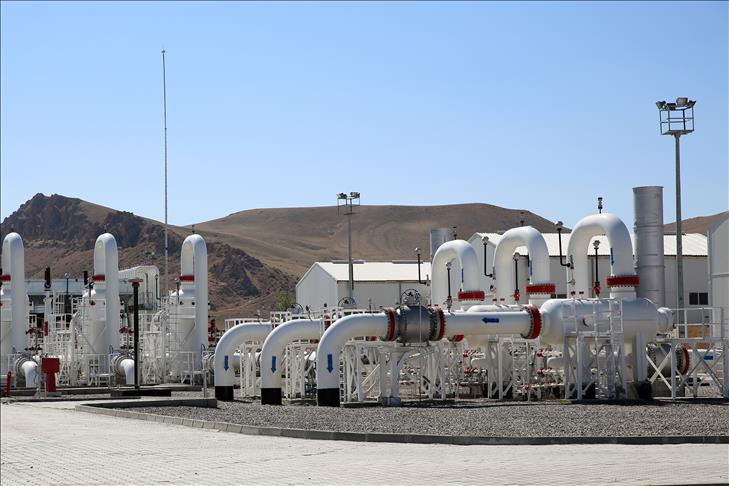
By Selen Tonkus and Fatih Erel
ANKARA
Representatives from the U.S., the EU, Russia and Ukraine are set to meet Thursday in Geneva for a summit aimed at finding a solution to the crisis in Ukraine.
The possibility of Russia cutting the flow of gas to Europe is expected to dominate the agenda.
Ukrainian experts are pessimistic about the likelihood of reaching an agreement with Moscow, saying Russia will continue using energy as a card, while European experts argue that Russia may choose diplomacy.
"I do not have much hope for the upcoming summit," said Volodymyr Dubovyk, Director of Center for International Studies at the Odessa Mechnikov National University in Ukraine, told Anadolu Agency on Wednesday.
"I do not believe that Russia is up to a serious and sincere dialogue - neither with the U.S. and EU, nor with Ukraine," he added.
Russian President Vladimir Putin sent a letter to EU countries on April 10 stating Russian gas giant Gazprom may cut the gas flow to Europe if Ukraine did not pay US$2.2 billion of debt.
During the meeting, Ukraine will want to refrain from discussing its internal issues and will seek to focus the discussion on how the country's debt and difficulties with natureal gas will affect Europe and countries elsewhere, as well.
On the other hand, Russia will try to bring up internal Ukrainian issues by alleging that the rights of the Russia-speaking minority in the country have been violated.
Dubovyk said the Geneva summit marked the time for the West to stop waiting for Putin's next move.
"The talk of delaying sanctions to give the Geneva talks a chance is nonsense," he said. "On the contrary, the sanctions should be advanced now to try to have some effect on Russia's behavior in the summit."
Defining Putin's letter as "blackmail", Dubovyk went on: "The EU should realize that they do not have a trustworthy partner in Russia, that they face a revisionist power, deeply antagonistic to Western values."
Sergey Glebov, a professor of international relations from the same university, also sounded a pessimistic note.
"Unfortunately, diplomacy does not work these days, because the international system of law has been totally ignored and finally ruined," he said.
Regarding Europe's energy security, Glebov said: "If the West, Ukraine and the Russian Federation could not negotiate on peace, how can they negotiate on energy?"
He said that diplomacy at the Geneva summit had little chance of convincing Russia not to use the energy card to ruin Ukraine, even if it meant destabilizing EU's energy security.
"Putin now does not care. He plays the brand new, one global geopolitical game, where gas and oil appear to be the sacred victim to be sacrificed in the name of his imperial plans," he said.
However, European experts were more optimistic about Russia's position at the summit.
"I imagine Russia will try to show itself as being 'reasonable' -- wanting to stick to a diplomatic solution," said Amanda Paul, an energy expert from the Brussels-based European Policy Center.
But she added that she doubted a straightforward solution would be found to the gas supply problem.
Paul pointed out that the EU's gas stocks were currently 48 percent full and said if Russia did cut off supplies, Europe would be safe for several months considering the continent was entering summer.
"Let’s also remember that Europe is Russia’s biggest market and Moscow can hardly afford to stop supplying gas for any length of time," she added.
Jack Sharples, an energy expert from the University of Glasgow, said Russia had so far not issued any 'energy threat' to Europe, adding that energy would continued to be used by all sides as a bargaining chip during the summit.
Emphasizing the mutual dependence between the EU and Russia, he said: "The EU depends heavily on gas imports from Russia, and the EU is Russia's most important gas export market.
"Both sides have an interest in maintaining this energy relationship, regardless of the political situation."
englishnews@aa.com.tr
Anadolu Agency website contains only a portion of the news stories offered to subscribers in the AA News Broadcasting System (HAS), and in summarized form. Please contact us for subscription options.

